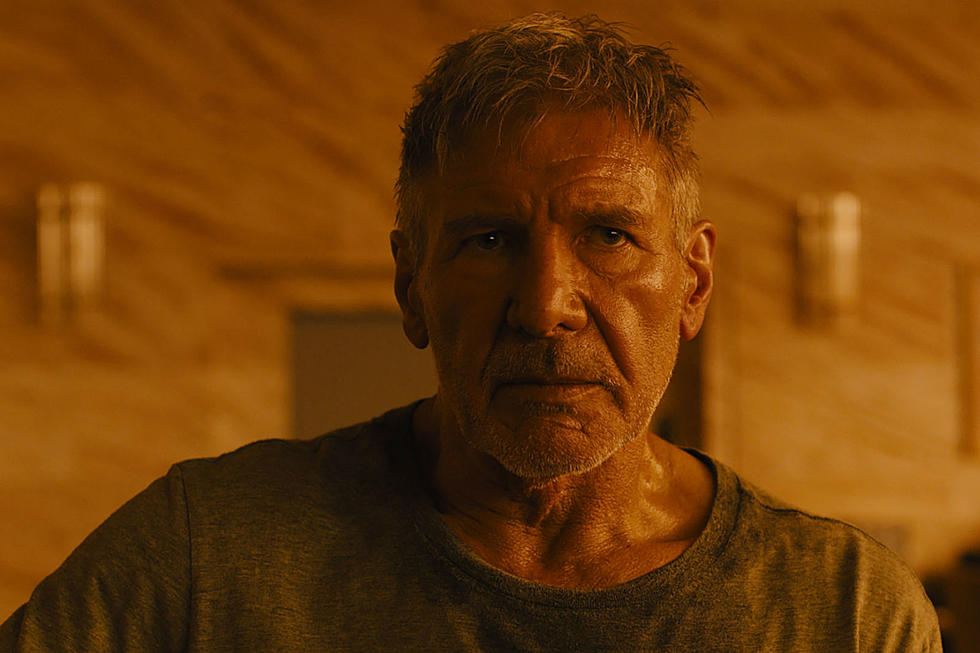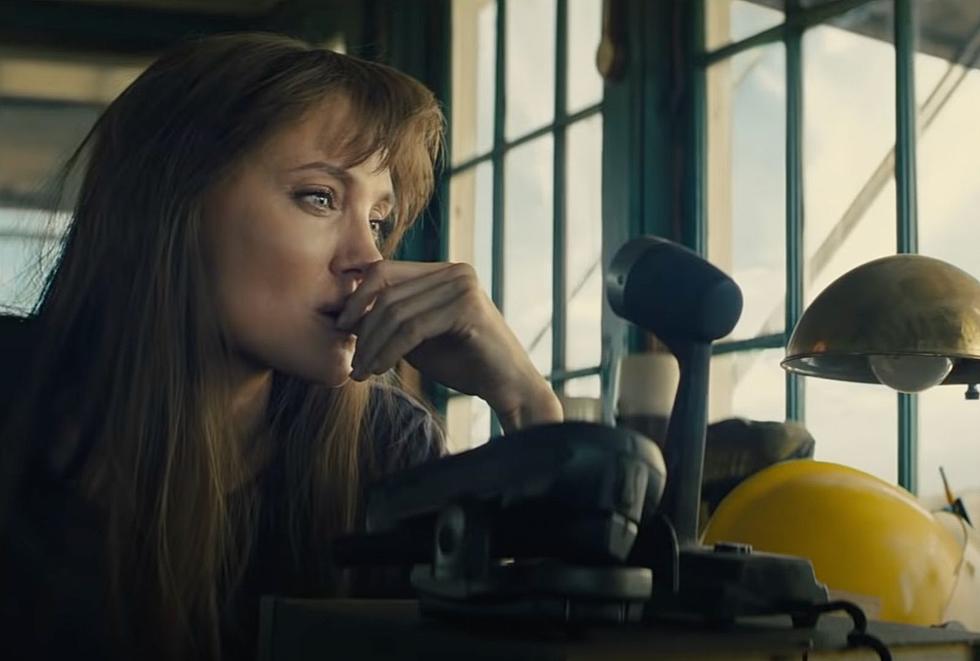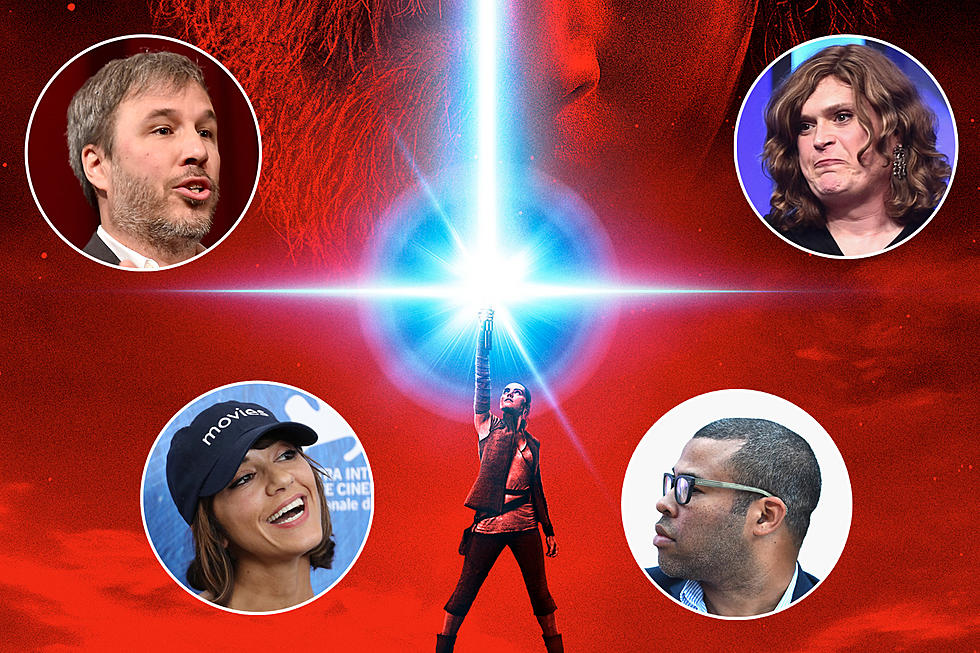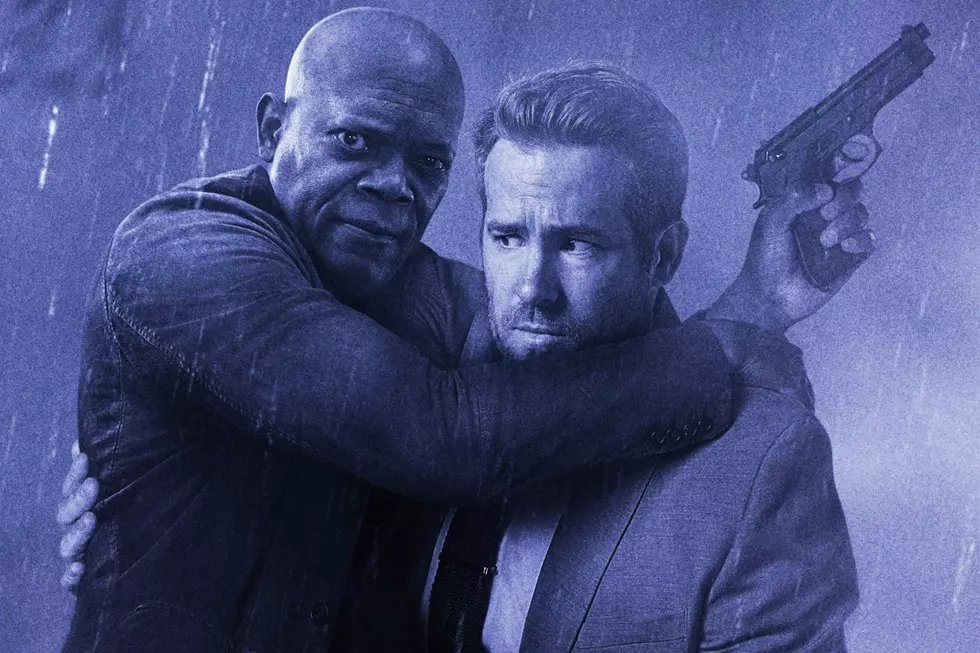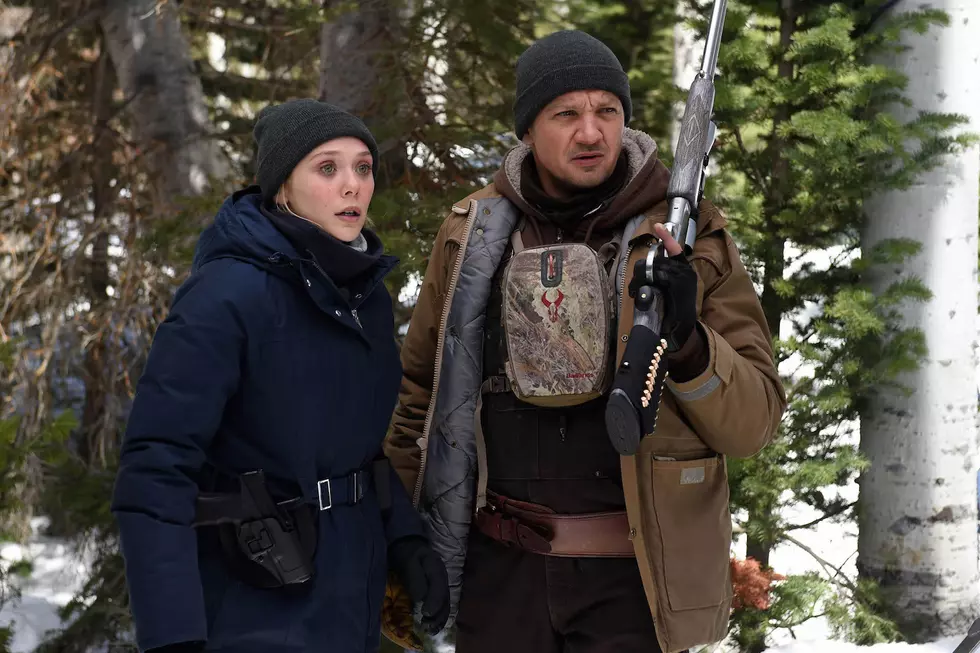
‘Wind River’ Writer-Director Taylor Sheridan Isn’t Interested In Making Blockbusters
Earlier this year, Taylor Sheridan added “Oscar nominee” to his resume. The actor-turned-screenwriter-turned-director quickly made a name for himself with Sicario, then wooed the Academy with last summer’s surprise critical hit and Best Original Screenplay nominee Hell or High Water. This year Sheridan returns with his third crime drama, Wind River, directing from his own script for the first time.
A western murder mystery set at the titular Wyoming Native American reservation, Wind River follows Elizabeth Olsen’s FBI Agent Jane Banner and Jeremy Renner’s local animal trapper Cory Lambert through a snowy investigation. After a young Native woman’s (Kelsey Asbille) body is found frozen in the middle of a far-away wintry hillside, Cory is confronted with the unresolved death of his daughter from years before.
Over the phone last month, Sheridan told me Wind River was the end of a trilogy exploring the American frontier following Sicario and Hell or High Water (though Soldado is still on the way). He also explained what’s drawn him to writing about crime-ridden areas of the country, how he keeps his approach to screenwriting separate from directing, and why making a blockbuster film isn’t on his to-do list any time soon.
After Sicario and Hell or High Water, it was exciting to see you directing from your own script here.
Thank you. I mean, it’s a pretty daunting thing, period, to direct. But kind of magnified by the fact that I had such gifted directors that did my first and second film. So yeah, it was a pretty daunting task.
What would you say was the biggest challenge?
Well, once you actually get started it just becomes about making your days and executing what you want in trying to get — you know, as a writer I can change things at will and there’s no effect in time. But I have to make decisions as a director, especially on a film that was under such a tight schedule. We shot it in 30 days, so there’s no opportunity to go back and there is no opportunity to get a safety shot. I had to shoot my edit, more or less. And to make sure that I’m conveying exactly the emotion and the tone and the scope in every frame because I couldn’t waste them. It was that pressure. Obviously I was assisted by a very, very talented crew and an excellent DP, which helped tremendously. But it’s the pace in trying to maintain — for me for the first one, anyway, and probably all of them — to maintain that consistency of tone and the consistency of the visual aspect of the film when you’re moving at such a fast pace.
Does directing have any effect on the way that you write your scripts versus when you’ve written scripts for other directors in the past?
I mean, it’s a good question. You have to be very careful as a screenwriter to not — you’ve got to write it as you see it in your head and not think about the difficulties that you are creating for a filmmaker. Let the filmmaker take on those issues when they come. You’ll start compromising the vision. Even though you might write scenes that don’t get in, [like] for the Sicario sequel, that were just simply far too expensive and difficult to do, you have to sit down and figure out, “OK, what’s the root of this? What’s the essence of this moment that we’re trying to convey?” And then you can find another way to do it. But I can’t limit myself that way as a screenwriter. I think that would hurt the screenplay.
That makes sense. With this film as well as your previous screenplays, you seem to be drawn to stories about poverty-stricken communities and crime-ridden parts of America. What is it about those areas of the country that inspire you as a screenwriter?
Well with this specific trilogy, I was examining the modern American frontier and really the consequences of its settlement. And how little has changed and how much has changed since that settlement. So highlighting these areas that are just outside the shadow of major urban centers and known regions, and kind of holding a mirror up to a world that people may have driven through and never noticed, or maybe never known existed. For me as a storyteller, I think one of the great things our job can do is introduce people to a world they don’t know exists that’s right beside them. And obviously one of the great beauties of the arts in the cinema is the opportunity to ask questions and kind of reflect our world back to us and have the audience ask questions and maybe effect some change.
It’s interesting that you call these a trilogy. Do you see these films as working together thematically, and are those themes something you’ll continue to explore in your future work?
Firstly yes, they are very tightly woven. As you’re looking at jurisdiction and crime and the role of government and life, it deals with the failure — the failure of a government to the people it’s supposed to protect. On a much more intimate level, failure is a father, and overcoming that grief and suffering and how we do or don’t deal with it. Perceptions on people of authority, perceptions on gender and race. These are all things that these three films examine. If I find another world — I don’t want to continue, I don’t want the trilogy to become a sextet. [Laughs] I don’t want to write eight of these same things; that’s going to become monotonous and derivative. But I feel that, for this purpose, highlighting these three regions and highlighting issues that are different, but the same in these regions, for me was a really interesting artistic endeavor and a bit of a social endeavor.
It’s an interesting decision that this film is told from the perspective of a white man, especially considering the real-life racial tensions between white folks and Native Americans on Native land. What was the choice behind making Corey the protagonist of this?
My experience in Indian country and with the protagonist, you’re always sort of writing somewhat autobiographically for a point of view, if that makes sense. Strangely, my point of view in Sicario was Kate, and Toby in Hell or High Water, and in this case Corey most closely mirrors my life in that I have relationships in Indian country. I’ve spent time on the Rez, I’ve spent a lot of time and have some very dear friends in the Native community. Though I have a foot in both of those worlds, I’ll never be fully, I’m not a member of any Native American tribe, I’m Irish, and yet I co-exist and have a number of Native American friends who have shown me a side of that world that most don’t know exist, and that this movie deals with as far as breaking stereotypes and issues on the Rez. I felt comfortable writing it from that point of view. I don’t know how to write — and at the time that I wrote this, too — from the point of view that I don’t fully understand. Do you know what I mean?
Right.
I got criticized for this by someone that I read, but I stand by it. It doesn’t mean I can’t write a character who’s African American or I can’t write a character that’s Native American. I wrote a number of them, but if I’m telling a story about a very specific point of view about a very relevant social issue, I felt really comfortable telling it like this. And having spoken to Native Americans who’ve voiced their concerns about me writing from a point of view of a Native American since I’m not one, this to me felt the way that I could do it respectfully and honestly and in a way that I’m familiar with.
Did you conduct research and receive feedback from Native American people when writing this?
I had a lot of conversations prior to, and there’s an Indian encampment north of Ojai where when I was a broke actor and didn’t have anywhere to live, I spent a lot of time up there and ultimately bought a trailer and stuck it up there and lived up there. So I have a lot of friends that I checked in on and said, “Hey this is how I’m telling this story.” And I had their support.
You’ve written this great trio of indie crime dramas. Do you plan to continue on that path or would you ever be interested in writing a blockbuster for a major studio?
Well I’m writing a few things for some studios now, but they’re always filtered through in a way I storytell. I like to deal with the ambiguity and I like to deal with questioning our protagonist, and who is the protagonist. Violence in my world is real and has real consequences, and doesn’t simply move the plot forward and give a hero a thing to overcome. So there’s certain rules that I’ve set for myself as a screenwriter that, regardless of who I write for, I won’t break. So if something becomes a blockbuster, so be it. If it doesn’t ever, so be it. It’s not a goal of mine.
Wind River is now playing in limited cities.
More From ScreenCrush
